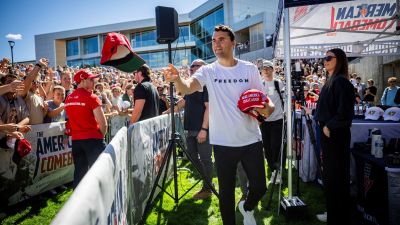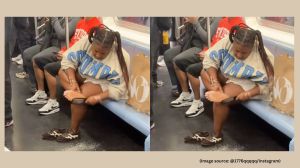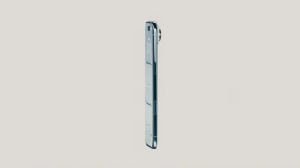‘We had a white flag on the house, why did my son die?’
Amid the jubilation here as convoys of US and British troops streamed north, a panicked woman waved her arms and wailed in grief as the batt...

Amid the jubilation here as convoys of US and British troops streamed north, a panicked woman waved her arms and wailed in grief as the battered pickup she was riding in skidded to a stop on the dusty street. On the floor of the truck were two dead men, their blood splattered over women supporting their limp bodies. ‘‘It came from the foreign helicopter,’’ one of the women said. ‘‘It came right into the house.’’
As the world watches the relentless US and British advance through the desert, the view from this small corner of the conflict suggests that some Iraqis may pay a far higher price than advertised for regime change. Claims of a dozen civilian deaths, and several times that many injuries, over the past three days could not be confirmed, nor could one report by a villager who said a helicopter opened fire in response to gunfire from an Iraqi rifleman.
With many roads still mined, subject to sporadic gunfights or clogged by tanks and other military vehicles — along with no functioning police force — getting to the truth will take time.
In this southernmost region of Iraq, there has been unexpected and persistent resistance to US and British troops. A few miles to the east, US Apache helicopters on Saturday shelled parts of the vital Persian Gulf port of Umm Qasr, in an effort to consolidate control of the town. US Defence Secretary Donald H Rumsfeld on Friday pronounced that Umm al Qasr — Iraq’s link to maritime trade — had fallen into allied hands. But fighting continued through Saturday, with US and British forces working to take out a number of ‘‘guys with guns’’ who had shed their uniforms and put on civilian clothes, according to a British military spokesman.
In the fight for nearby Basra, Iraq’s second-largest city, US forces came under artillery and machine-gun fire as they seized an airport and bridge. Reporters attempting to reach Umm al Qasr or Basra ran into firefights and returned here to Safwan, the first Iraqi settlement north of the Kuwait border, where area residents were seeking medical care and other help.
‘‘He was such a good son, my only boy, Khamat, always taking care of me,’’ said Fizah Abuaid Thekyal, 74, pounding his chest at the gates of the Safwan mosque as his son’s body was being brought in from the pickup truck. ‘‘We had a white flag on the house. I don’t understand. I want to see him. I want to see my son.’’ Imam Abu Ahmed emerged from inside the mosque and led Thekyal into a small room behind the main hall where his 35-year-old son’s body was arranged on a stone slab. The figure lay face up, a portion of his intestines exposed, his right hand mangled and separated from the arm. A dozen shrapnel wounds cut gashes in his legs. An assistant prepared a white shroud.
Several Safwan villagers assembled in the dusty streets expressed emotions ranging from bewilderment to anger at the level of damage they say they’ve suffered as the world’s largest military force stormed past their homes. Gen Tommy Franks, who heads US Central Command and is running the war, reiterated on Saturday America’s determination to avoid civilian casualties. Despite such assurances, the conflict in southern Iraq clearly has been messier than anticipated.
In addition to the two corpses in the truck, a stream of injured villagers made their way to a rundown health centre or sought assistance from military police encamped on the nearby road to Basra.
At the village clinic, 20-year-old student Abbas Fadel lay stomach-down on a bed without sheets, with gunshot wounds in his back. His sweaty skin stuck to a flowered plastic covering as flies circled overhead.
In the hallway, two broken wheelchairs and six mismatched plastic chairs graced the entryway beneath an imposing picture of Saddam Hussein. An old eye chart and a few health posters decorated otherwise bare walls.
Many villagers expressed anger not only at the casualties and destruction but also at the disruption of basic human needs, saying they were led to believe humanitarian aid would quickly follow the military strike.
‘‘People need food and water,’’ said Mazen Abdullah, a volunteer at the Safwan Centre for Health. ‘‘The ambulance can’t even pick people up because of all the soldiers. We need doctors here. People are burned, there are shrapnel wounds. All we have here is the most basic first aid.’’
British troops, led by Second Lt. Russell Cowhig of the Royal Mounted Police, a native of Machynlleth, Wales, said they were trying to get emergency supplies not only to villagers but also to 37 Iraqi prisoners of war who surrendered Thursday and who were being held in a barbed-wire enclosure in a highway clover leaf.
‘‘I’m hungry,’’ said one of the men, who identified himself as Abdul Karim, as others sitting beside him complained of the cold and the long wait. Across the road, a British soldier was destroying a small pile of Iraqi-issue rifles with a sledgehammer. (LA TIMES-WASHINGTON POST)
Photos



- 01
- 02
- 03
- 04
- 05




























